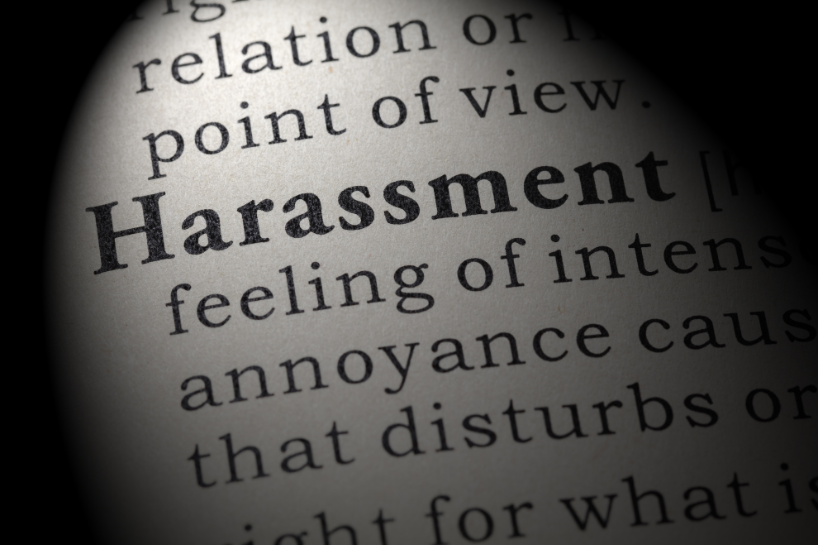As of December 2022, employers have had a positive duty under the Sex Discrimination Act 1984 (Cth) (“SDA”) to take proactive measures to eliminate and prevent, as far as possible, unlawful sex discrimination, sex-based harassment, sexual harassment, conduct conducive to a hostile workplace environment and related acts of victimisation against complainants of the conduct.
An employer who fails to meet its positive duty and allows sexual harassment within its workplaces may be subject to various consequences, including significant financial penalties for breaching provisions of the SDA.
A recent example of such a failure is the case of Taylor v August and Pemberton Pty Ltd [2023] FCA 1313 in which a Sydney Jeweller and its director, Mr Simon Grew, were ordered to pay a record amount of damages to an employee found to have been sexually harassed by Mr Grew during her employment.
Background
Ms Fiona Taylor was employed by the Respondent company, trading as Grew & Co, a small business which manufactures and sells fine jewellery from January 2018 to April 2022. Ms Taylor commenced proceedings against Mr Grew, the manager and sole director of Grew & Co, accusing Mr Grew of sexually harassing her and engaging in other unwanted conduct before victimising Ms Taylor after she complained about Mr Grew’s behaviour toward her.
Ms Taylor alleged that Mr Grew engaged in unwelcome conduct toward her including the following:
- Gifting Ms Taylor numerous unwanted gifts including several items of jewellery stocked by Grew & Co, a Chanel coin purse, $2000 cash, designer clothing, a massage and a gift card.
- Making inappropriate comments of a sexual nature toward Mr Taylor, including:
- “you have a beautiful body”;
- “you have a really nice body“;
- “you have bedroom eyes“;
- “I like petite curvy brunettes“;
- “Not sure if I mentioned how amazing you look today“; and
- “you are actually perfect”
- Slapping Mr Taylor on her buttocks as she walked through a doorway;
- Making repeated declarations of his romantic feelings toward Ms Taylor, initially in January 2020 when Mr Grew said “I’ve developed feelings for you. I can’t hold it inside any longer…I think you’re the most beautiful woman I’ve ever seen…We can run the business together or if you want to start your own business, that’s something I can help you with“. Ms Taylor made clear to Mr Grew that his feelings were not reciprocated. Nevertheless, Mr Grew confessed his romantic feelings for a second time in June 2020, when he said, “Hey can I ask you something… Are you and I going to become something, or do I need to turn my feelings off?” to which Ms Taylor again expressed that Mr Grew’s feelings were not reciprocated, telling Mr Grew that he “needs to move on”.
The working relationship between the parties broke down following Mr Grew’s second confession of his romantic feelings, to the point where Ms Taylor took a period of leave from work and did not return to the office beyond August 2020.
In August 2020 Ms Taylor sent a letter to Mr Grew, through her lawyers, alleging that Mr Grew had sexually harassed her throughout her employment. Ms Taylor’s letter evoked a hostile response from Mr Grew, who sent a letter through his own lawyers seeking Mr Taylor’s immediate return of the items that he had gifted to her.
Ms Taylor then made a formal complaint to the Australian Human Rights Commission alleging that Mr Grew had sexually harassed her, to which Mr Grew responded on 15 October 2020 by accusing Mr Taylor of theft and threatening to report Ms Taylor to the police. Ms Taylor then formally resigned from her employment.
Ms Taylor developed chronic and severe psychiatric disorders as a result of Mr Grew’s conduct. Consequently, Ms Taylor suffered depression and anxiety, disturbed sleep, reduced energy, poor concentration, lack of motivation, loss of appetite and a reduction in social contact.
Ms Taylor sought $250,000 in general damages for sexual harassment and a further $50,000 for victimisation, alleging that Mr Grew victimised her by demanding the return of items gifted to her and threatening to report her to the police if she did not comply after she had complained about Mr Grew’s conduct.
Decision
The Federal Court of Australia was satisfied that Mr Grew had sexually harassed Mr Taylor in breach of section 28B(2) of the SDA by slapping her on the buttocks and by making repeated confessions of his romantic feelings toward Ms Taylor. The Court was also satisfied that Mr Grew had victimised Ms Taylor in breach of section 94 of the SDA after she initially raised her complaint against him by accusing her of theft. The Court was satisfied Mr Grew’s conduct “was a vindictive act, taken in large part, if not entirely, in retribution for lodging her complaint to the Australian Human Rights Commission“.
In coming to its decision, the Court emphasized the importance of assessing the context in which the conduct of an alleged perpetrator of sexual harassment occurs, with the Court acknowledging that
“”conduct of a sexual nature” may be explicit or implicit… And conduct which, when considered in isolation, appears to have no sexual connotation may still amount to “conduct of a sexual nature” or, for that matter, a “sexual advance”. The conduct in question must always be assessed in its context.”
The Court found the amount sought in general damages by Ms Taylor was “manifestly excessive” to such an extent that it could be considered punitive in nature rather than compensatory. On this basis, Ms Taylor was instead awarded $140,000 general damages for the sexual harassment, and $40,000 for the victimisation. The Court was satisfied that the damages awarded were sufficient to compensate Ms Taylor for the chronic psychiatric disorder that she had suffered as a result of Mr Grew’s harassment.
In addition, the Court also awarded Ms Taylor $15,000 in aggravated damages, $3,000 for future out-of-pocket expenses associated with her psychiatric disorder, $37,685 on account of lost earnings and $8,599 in lost superannuation, plus interest.
In total, Ms Taylor was awarded $268,000 in damages.
Implication for Employers
Although this decision involved conduct that occurred prior to the introduction of the new positive duty to eliminate unlawful sex discrimination and sexual harassment under the SDA, this decision presents a timely reminder that employers who contravene their obligations under the SDA may face significant consequences, including substantial financial penalties. This decision clearly demonstrates the court’s willingness to award significant damages to successful applicants claiming that their employer has breached their obligations. It is important for employers to ensure that they have designed and implemented appropriate and effective measures to proactively address sexual harassment and unlawful sex discrimination within their workplaces to avoid liability for such penalties.
For more information on the new positive duty, see our article titled “Navigating the Positive Duty: Guidelines Published for Complying with the Positive Duty to Eliminate Unlawful Sex Discrimination and Sexual Harassment“.
If you require assistance with your business’ compliance with the positive duty, get advice from our experienced Employment Law team at Hunt & Hunt Lawyers. We can assist your business with policy updates and training tailored to your business to ensure compliance.
By: Olivia Shirvington, Lawyer






































































